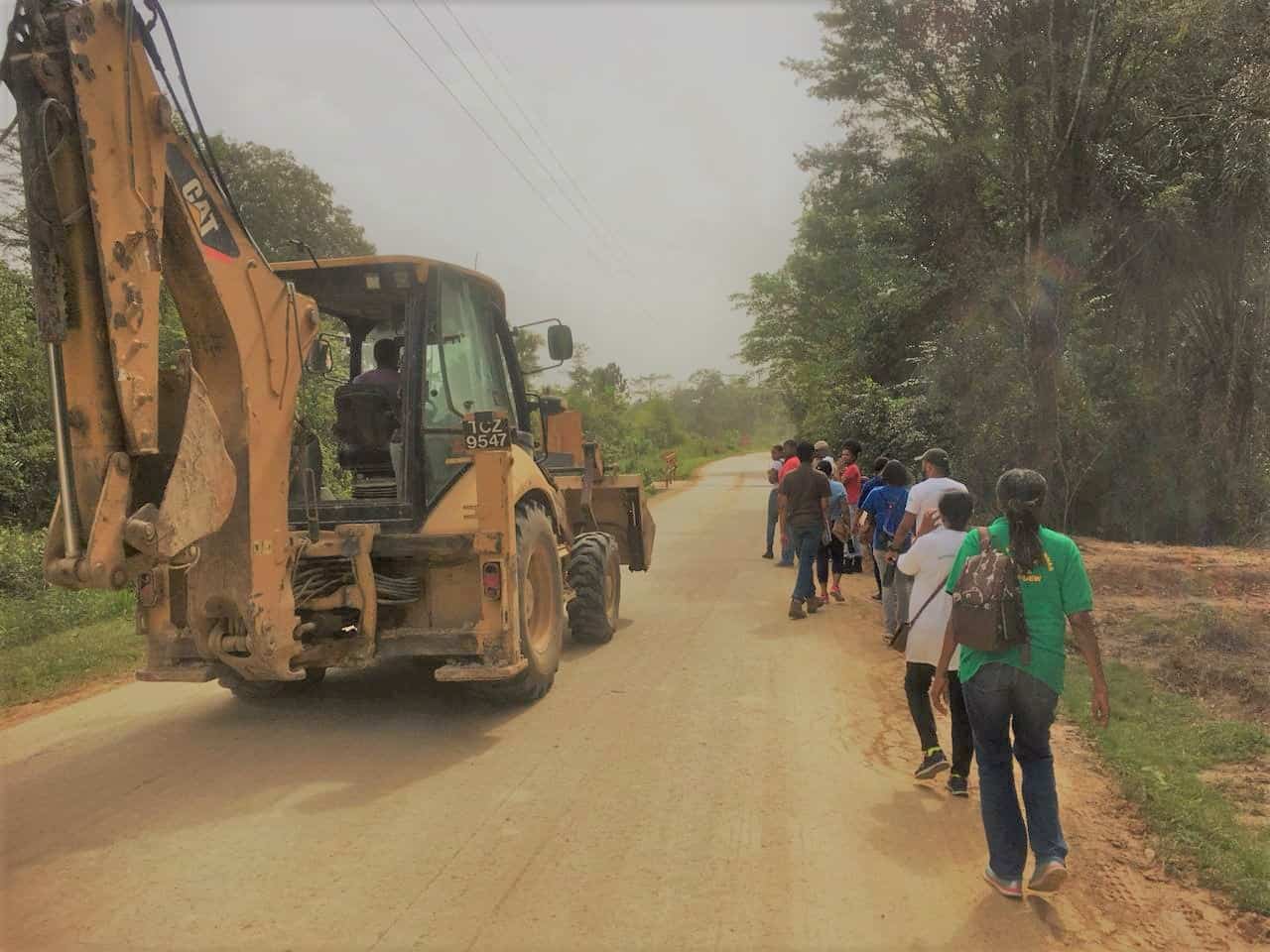So I’m part of this Tobago-based group heading into Port of Spain in the heat of the dry season. The minibus is having issues with its air-conditioner and traffic is tight. We decide to take a break on the Lady Young Lookout as we have some time. What a disappointment. Not speaking about the view, mind you. It’s the dust, then the haze, added to the cocktail of industrial smells the trip has provided thus far. For me in particular as we dawdle around, it is the irritating tickle on the tongue of fine – let’s call it microscopic – gravel. We leave the lookout a great deal faster than expected, not that anyone says anything. But it gets me to thinking.
Air quality is a right but it’s one freely sacrificed by almost every person since the acceptance of fire into human life. We’ve tooled fire into the myriad processes that deliver modern conveniences: Things such as the car, the material for our homes and offices, our kitchens and our kids’ toys. Yet transport and commercial fire brought- brings with it rather- a slew of particulate matter that hangs around smogging things up, clogging lungs, shortening lives. Indeed normal life for the city dweller poses a risk curve even greater than chronic cigarette smokers face.
Loss of air quality is insidious. You do not see it coming and when it arrives it is almost always expensive to work around, to mitigate or to fix. The decidedly evil thing about air pollution is that it is practically unavoidable for both the poor and the well-to-do. The poor needs to be where the fires of industry are burning as much as the wealthy or the more educated need to be near those fires if they want to keep an eye on things.
The most visible air quality villain in sweet TnT are the vehicles that we have so come to depend upon. In catering to that dependency we’ve fallen into the trap of living next to roads so that we can get out and about in our cars and trucks. The upshot is that we live, eat and sleep in the fumes generated by our preferred transports, giving up sizeable chunks of breathing time in the process. Trinidadians, however, are not alone in neglecting quality of air. Daily we observe the plight of people in the great cities of the developing nations; like those in China, India or even Africa.
Air pollution is a sweeping man-made disease that kills seven million people per year; a full million more than the number of smokers drawing last gasps, according to the World Health Organisation. That’s more than the annual combined total of deaths due to AIDs and malaria. Moreover, the WHO also recognises that poor air quality is the world’s first and largest preventable health risk, a statement worth examination. It means that breathing, yes, BREATHING, is inherently more dangerous to the human race than tobacco addiction, poor diet, lack of exercise, high blood pressure, AIDs and malaria.
To truly understand how such a correlation can make sense, a few small statistics come into play. The average person eats about one kilogram of food per day, drinks about two kilograms of water, but breathes about ten kilograms of air. In short, the act of breathing, required to sustain life every moment waking or sleeping, will kill if the air quality is bad. It is no surprise the term pandemic has recently been applied to poor air quality. But there are also those easy to miss links to Climate Change, itself starring in mainstream news these days.
Mary Robinson, once UN High Commissioner for Human Rights said, “Climate Change is probably the greatest threat to the human race in the 21st century”. Science has since upgraded that opinion to “the greatest threat to life ever”.
Air quality is not always attended by visual indicators. There can be bad air in elevators, in old or even new warehouses, in lived-in houses. And air quality, so invisible, so intangible, is the prime link tying what we do to why we suffer. Consider two familiar examples: The cars we like, those highways we want. Each brings with it a huge cone of activity that impacts directly on the quality of air in our immediate environment. Not that moving our factories or drawing raw material from remote locations fixes anything either. Think Sahara dust and the rash of afflictions the Ministry of Health has been dealing with recently. Bad air has few geographic limitations, it respects political boundaries even less.
Somebody somewhere once said we are architects of our own demise. How true. When we circumvent the building codes, eschew the principles of greening such as efficient power use, neglect tuning our motors, we are actively and in turn impacting our airspace, effectively poisoning our own bodies as well as our loved ones, even our neighbors.
Bear in mind, however, that of all the diseases that threaten human life – to recall the World Health Organisation’s designation for poor quality air- the remedy to this one is known and attainable.
Good air these days does require political will of course, but that is subject to the dictate of the people, is it not? Actually, as we participate by the very act of breathing on World Environment Day this June 5th, we simply need to elevate ‘air’ to equate with ‘life’ and act accordingly. How long we each can live is really just a matter of adjusting lifestyle. Do anything less and we, too, become as dust in the wind.





